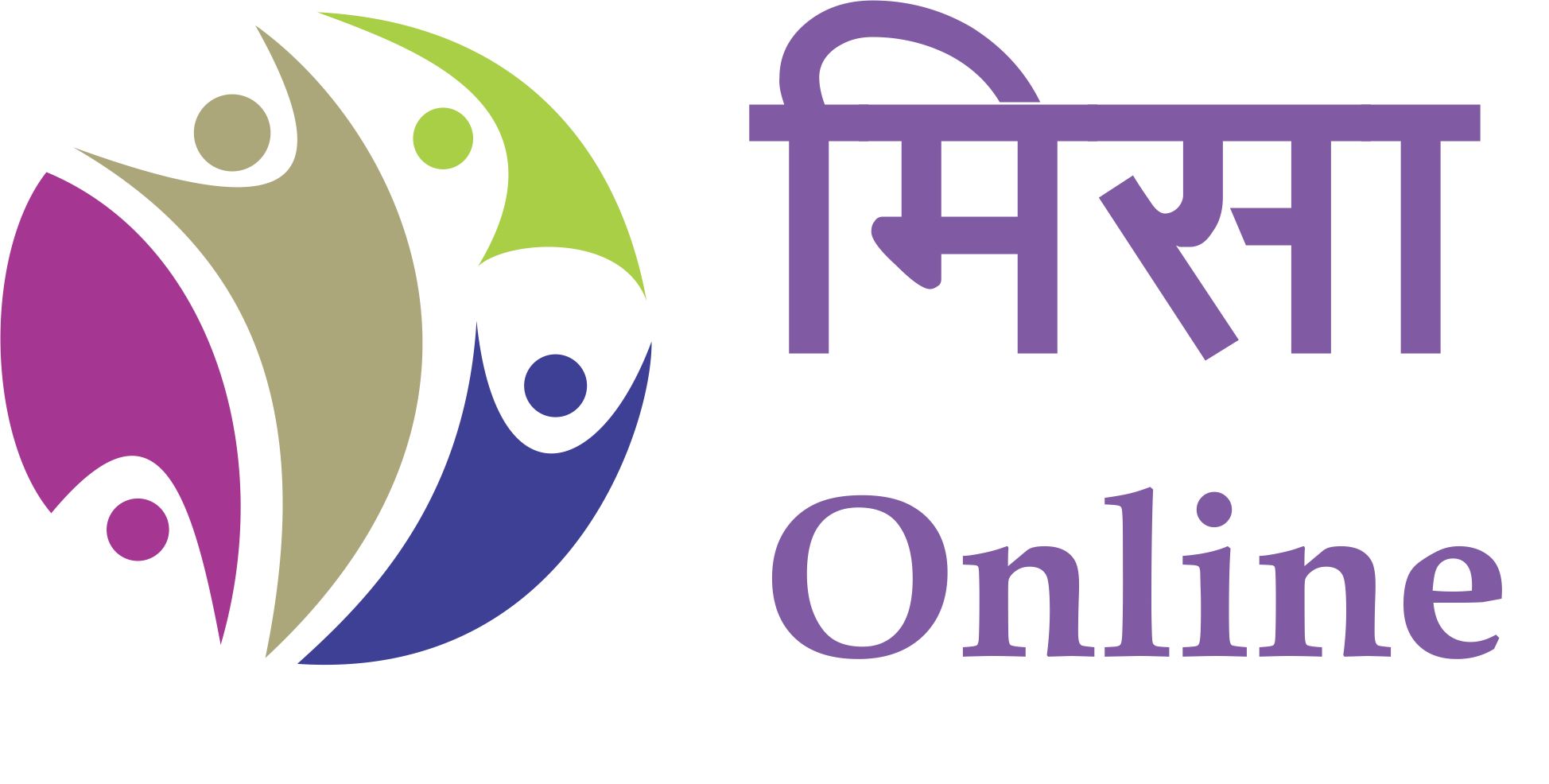Aagḻévegḻé: A Uniquely Different Place where FUN IS FREE
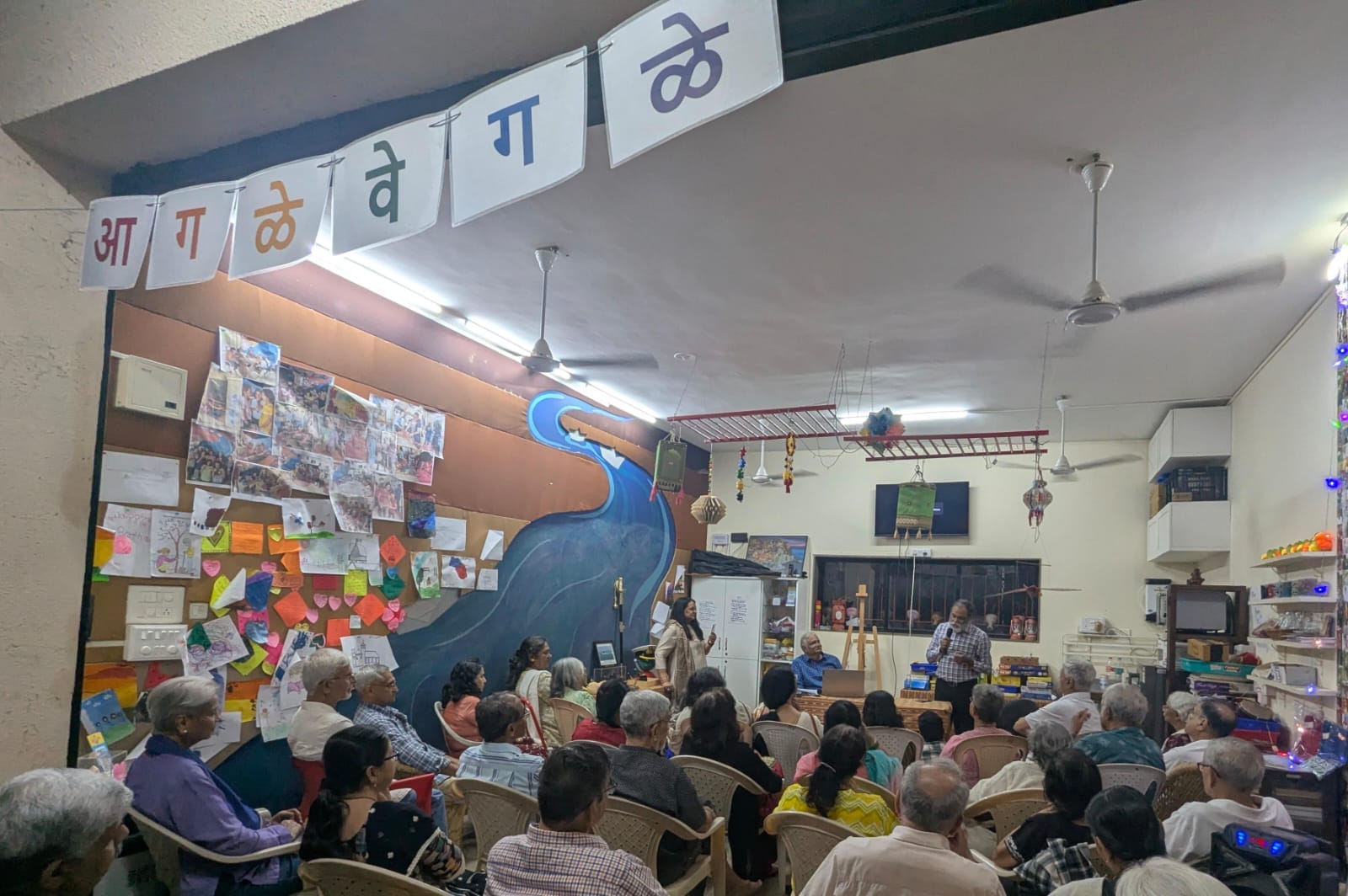
Surekha Sule, a seasoned journalist, researcher, writer, and author, takes readers inside Aagḻévegḻé, an unusual community space in Pune created by Parul and Anand Kumtha along with their differently abled son Kabir. In a time when recreation is increasingly commercialised, their initiative offers an open, inclusive environment where people of all ages and backgrounds can meet, create, and share — entirely free of charge. Through her conversations with the Kumthas, Sule reveals how this space has become a thriving hub for creativity, connection, and acceptance.
In today’s heavily commercialised world, nothing comes free! The entertainment industry is booming as people want to get away from their daily hectic schedule, even at a pretty high price.
But what if I tell you that there is a place right here in Pune where “Fun is free” and there is absolutely no charge at all! Aagḻévegḻé - which came up in the shopping complex of Forest Trails Township, Bhugaon in Pune over two years ago – offers a unique creative space where one can freely express, entertain, inform, and connect with people on just anything of their interest. You want to paint on the paper, canvas, or cloth… well, the material is there. You wish to sing, the karaoke and music system, and also musical instruments are there! You wish to dance, the floor is all yours with dance experts! You wish to learn crochet; a tutor is there! You wish to give a talk on a subject; the arrangement is made for the speaker and the audience! And the list can go on and on.
An amazing couple, Parul and Anand Kumtha, along with their son Kabir, who is a person with disabilities, started Aagḻévegḻé. What sets it apart is that it is open to all age groups and all classes without any discrimination. A celebrity is welcome; so also a worker’s child, with the same affection and dignity.
Every evening, the shutter is pushed up to open up this space for everyone. The kids from the neighbourhood area flock here for fun, games, puzzles, and learning. And the elders just walk in for various activities – just chat or sing or attend the events organised specially. The place has become a popular haunt in the Forest Trails township.
In a free-wheeling discussion, Kumthas tell Surekha Sule about the place and its activities.
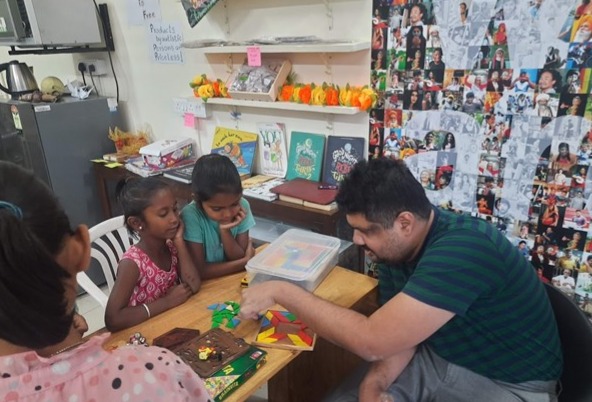
Surekha Sule: What inspired you three to start Aagḻévegḻé? What were the objectives?
Anand Kumtha: What is a community? Why are the connections made? What would make all accept diversity? How could people be allowed to be their natural selves? The pandemic offered an opportunity to explore many aspects around these questions in unconventional ways for a connection of humanity beyond beliefs, ideologies, and politics. From this arose the idea of Aagḻévegḻé आगळेवेगळे - a safe, inclusive, free space to be oneself unapologetically.
Parul Kumtha: What we learnt while raising our son Kabir, that inclusiveness is not just about bringing a person into a space. It is about the others in that space accepting the person who is diverse in some way or the other. By and large, it is perceived that a person who is different has to fit in! But what we have learnt over the years is that actually the person who is ‘typical’ needs to be open enough to accommodate a different person.
So, we were thinking about how it could be done. We have been engaging Kabir in a lot of inclusive spaces of different kinds. So, we thought of starting one here in our Forest Trails, Bhugaon, open to all persons. It was such a need of society that people from all strata of society, all age groups started using this space, and it has been a nice journey.
Anand: We wanted to have a non-judgmental space where people can be themselves and not feel worried about being judged; where they feel safe to express themselves and do freely what they want. Especially, in today’s atmosphere, everything comes at a price. But we all need a free space which allows people to meet others from various strata of society, who are different from us. It is an opportunity which people are deprived of today, which expands our horizon and opens our minds. Also, today, people with different thinking and diverse opinions do not mingle. They mostly relate to those who think and opine like them. But we can all just mingle because we are human and we can have friendships irrespective of our diverse backgrounds, as we are not just made up of only opinions and thoughts but also of emotions, different natures, and personalities. And there are so many aspects within us to connect upon. So, Aagḻévegḻé is a space where one can explore creativity and curiosity within oneself and connectivity with others.
Surekha: Is Aagḻévegḻé based on some model, or does some such community place exist which you visited or observed, as you have gone all over the world? And did you wish to replicate that model or base it on that kind of an idea?
Parul: No, the only thing that we saw in California, which we replicated, is our sharing shelf, which is there 24X7 outside the Aagḻévegḻé shutter. Books, toys, various materials, including garden produce … anything can be kept there by anybody, and anybody can freely take away anything from it, anytime.
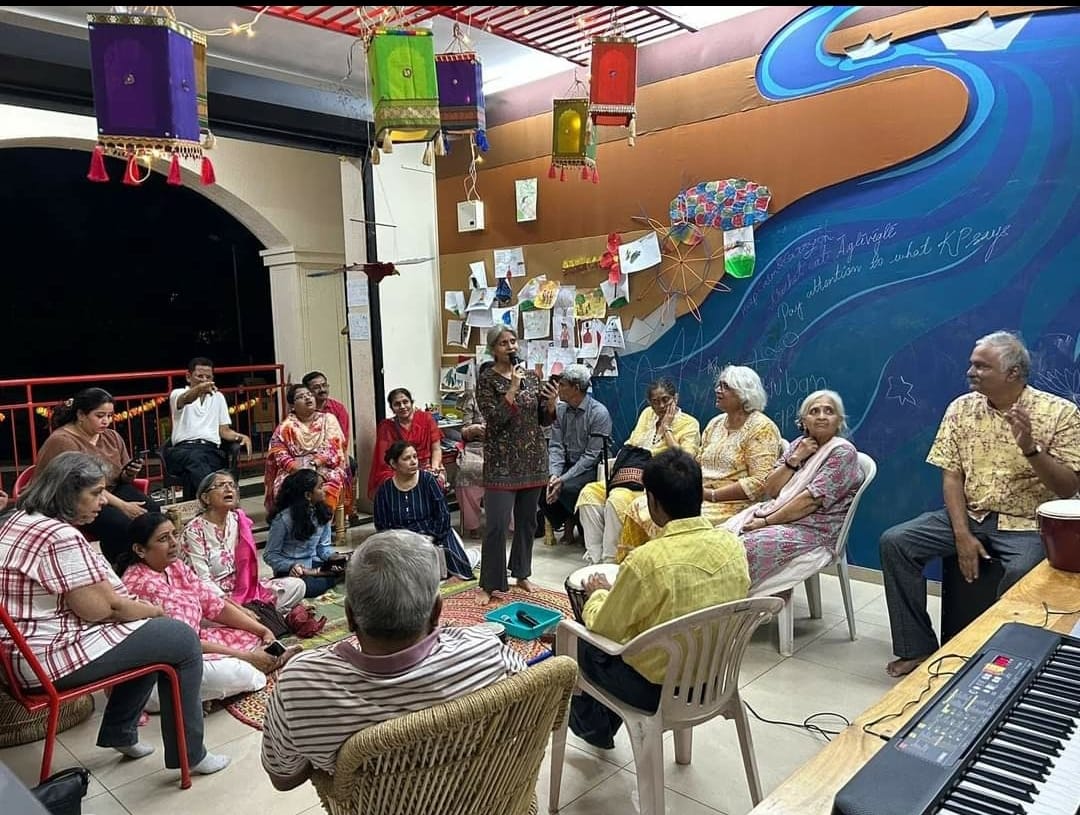
Anand: From childhood, we have been people’s people, and my childhood home was frequented by a number of people besides relatives. This is very central to this idea. We cannot live without a lot of people visiting us. I would say Aagḻévegḻé is our home without the door or the front wall; not even a glass door to push and enter. It’s open. It is symbolic of the open space inside. Anybody can just walk in.
Parul: Talking of symbolic representation - One of our walls has a huge blue chalkboard depicted as a river on which anyone can draw, write stories or leave an unfinished poem for others to finish, etc It kind of lets a person know that over here, one can just go with the flow if one wishes to. The banks of the river are made of softboard on which anyone is free to pin their art, craft, writing, etc. The opposite wall has a collage of diverse persons across our country, with our motto woven in: “I am because we are”. The seating arrangement is flexible and the chairs, tables, etc. are an eclectic mix – since one size does not fit all diverse persons. We have tried to keep the look simple, non-imposing, curiosity-arousing, and welcoming to all.
Surekha: Would you rather compare this space you created with a community centre in hutments/settlements where a space is created in a temple or under a tree or a shed, for people to assemble for various activities? Here also, there is no charge. Activities take place through contributions. There are study centres where some volunteers help children with their studies. Was there some such concept in your mind while starting Aagḻévegḻé?
Anand: I will put it in a different way about our source of inspiration. We both are trained in Narrative Practices, which is a way of counselling. We wanted to use the principles for preventive mental health, like there is preventive medicine. Preventive mental health starts when you feel completely accepted and there is no judgment being passed on you. We always felt that people from all economic backgrounds, all classes and castes, with all languages, could come and participate together. In bastis and hutments, it is usually meant for people from particular strata of society. Similarly, Society halls or clubs are meant for people from other strata of society. Aagḻévegḻé is for all to come together and mingle, from bungalows to bastis. So, just as some village children come to enjoy the therapeutic fun of watercolour painting, a woman from a high-rise building once declared: “I am going to sketch for the first time after my marriage”. Or a senior citizen from another society was happy that he restarted singing after forty years. Children from the bungalows, towers, and service providers’ quarters worked together in the Lego workshops, the Ganapati idol-making workshop, etc.
Parul: And coming back to the objectives… well, one very important objective is to create a space that gives respectability to people with disabilities like Kabir. Right from day one, we have been showcasing various products made by autistic persons – like torans, jewellery, printed mugs, t-shirts, mobile covers, etc., home-made compost, bags, rakhis,… Kabir is a host of Aagḻévegḻé with us; he is also a singer and the puzzle master. He has become an autistic self-advocate for friends and visitors of Aagḻévegḻé just by unapologetically being himself. This has resulted in Kabir being invited to various homes and also to hoist the National Flag on 26th January in a nearby society. The last Kojagiri singing programme of the township started with his song, and the Saraswati Pooja was performed at his hands. This gave hope to other mothers with children like Kabir, who expressed it to us.
And our objectives keep evolving. Like “Just AutSome Café”! A mother, who is also a professional, has a vocational centre to train autistic persons, and has placed two of them in a bakery. Then it struck us that we could use Aagḻévegḻé as an internship space for them and run a once-a-month café with a new menu each month. It is named “Just AutSome” - Autism + Awesome = AutSome. The taking of orders, preparing the dishes, serving them, making the bills, accepting the payments, etc, are all done by the autistic persons… sometimes even singing for the audience if time permits! People look forward to it every month. Last month, a family celebrated the grandmother’s birthday at the Café. It was so lovely!
At Aagḻévegḻé, we get to witness that inclusion is a two-way street. One April, which is World Autism Awareness Month, we had three accomplished autistic singers perform in our event ‘Mile Sur Mera Tumhara’ at Aagḻévegḻé. The response was overwhelming. After that, our township singing group made Aagḻévegḻé the space for their weekly in-person singing.
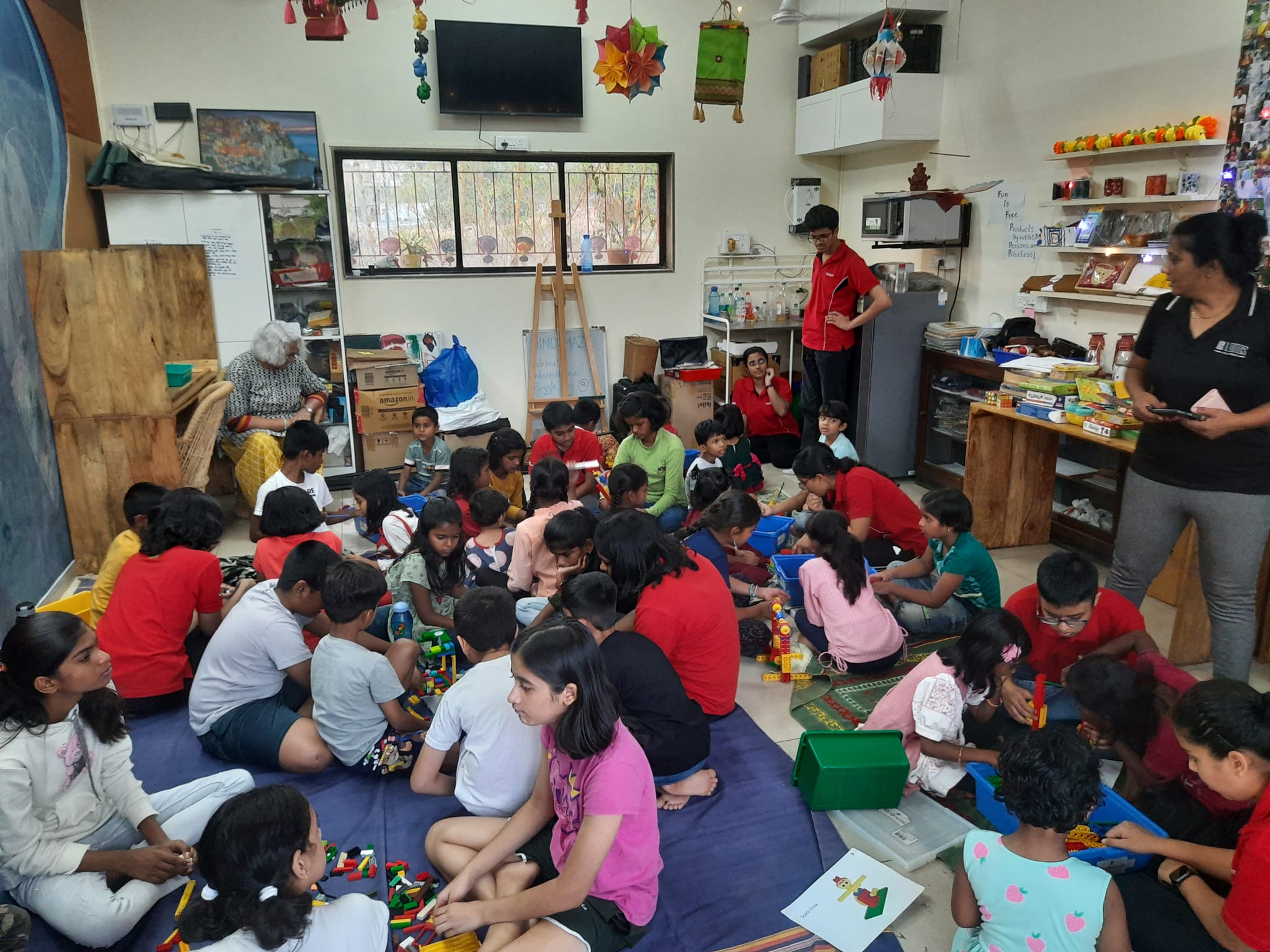
Inclusion happens best by getting to know diverse people, rather than through lectures or workshops. Not only does this apply to autistic persons, but also to any person who may be different or from a different background than oneself.
Surekha: I think that there is a kind of sense of ownership about this place. All feel that it is their space and they own it along with others.
Parul: …And how we knew that the ownership has happened completely is, for example, when new persons join our WhatsApp group and ask what this Aagḻévegḻé is all about. Before we can even see the query, three other people have already explained it! That is such a lovely feeling.
Surekha: Yes, they feel a kind of responsibility and wish to do something for that space. If not, then at least donate something.
Anand: Yes, people have contributed to its journey in various ways. Even financially. We pay for the rent of this space, utilities, and most of the materials. But people offer to donate things that are required here. Here in Bhugaon, we have frequent power outages. Hence, someone anonymously paid for the power backup. Someone donated the musical instruments. Someone donated the Lego sets. Someone found a shortage of chairs and floated the idea of donating money for one or more chairs. People have come forward on their own to conduct free workshops on various skills.
Parul: As people take ownership, if we indicate a need, I am sure that many here will contribute.
Surekha: Now, talk about some of the activities that make this place so unique.
Anand: Each person has something unique - Aagḻévegḻé - in them. I am not like you; you are not like him... We try to spot and share unique life experiences and insights, especially of the people in Forest Trails, as a human library, which adds to our experiences. Captain Atul Dharwadkar (Retd.) enthralled the audience with his talk 'Submariners' Tales: Stories that Seldom Surface'. Jogi Bhagat told some heart-wrenching true human stories of Dunki - illegal Indian migrants into Europe, along with the screening of his documentary film “Road to Germany” and how Jogi ji helped hundreds of them to return to their homeland. Noted author Umesh Kadam narrated stories and life experiences of humanitarian work in the conflict-torn countries through the International Committee of the Red Cross. Faye Cummings - a national-level gold and silver medallist in Powerlifting and a Callisthenics guru gave a talk about being fit at any age. Veena Bakshi’s national award-winning film 'The Coffin Maker’ was screened, followed by a conversation with her. Cheryl Kanekar's acclaimed and engaging film 'A Pyramid of Women' was screened, depicting the spirit of the first women's Govinda team. Senior citizens from the Forest Trails Athashri B1 presented ‘Sab Kuch Pu. La’ - an evergreen program of play reading, acting, and dance based on P.L. Deshpande’s rich literature. We have had poetry reading sessions by Mamata Sumant and Sadhana Athalye, book releases by Suruchi Mathur, Surekha Sule, and Milind Hastak.
Parul: There have been many other events and celebrations, like book lovers’ hangouts, World Music Day celebrations, World Accordion Day celebration, International Women’s Day celebrations, Science Day celebration, World Theatre Day celebration, health check-up camp for working-class women...
Ours is not a structured instructional space. But we have organised many short, fun-filled free workshops. These started with Krishnapriya Wadhavkar offering to conduct a free crochet workshop. It went on for over three months. Then many others from the township came ahead to hold workshops on various skills for all ages: Swati Bhavsar, Sucheta Tengshe, Esha Rajadhyaksha, and others’ workshops on various forms of dance; Snehal Baviskar’s workshops on classical music, Amrita Tengshe and Sunita Kulkarni’s storytelling sessions, Aparna Sridhar’s fabric painting workshop, Anuradha Bhusari and Meenal Palashikar’s lace-making workshops… We have had some professionals offering to do free workshops too: Sheshadri Iyer’s demonstration workshop on accordion, Uddhav Phadke’s seminar on sound and music, Fatema Bharmal Abid’s sessions on mental health, Prakash Jadhav’s session on Investing, Pooja Ugrani’s Origami workshops, Pramod Chikmani’s Ganapati idol-making workshop… It is difficult to name them all!
The Bastianpillai family from the township - Prakalpa, Chris and Siddharth - conducted multiple Lego Workshops. Then they also ran a weekly Basic Robotic Class for about three months for the village children here. The Robotics workshop had a greater number of girls. On the other hand, the no-fire cooking workshop held by Pallavi Sontakke had a greater number of boys as participants. At Aagḻévegḻé, everything seems to happen differently!
Anand: We also celebrate International Puzzles Day. It is a popular event as well as a daily activity - immersing in Aagḻévegḻé’s khazana of a diverse range of puzzles and games. We have hundreds of various kinds of puzzles – 2D and 3D, geometric, topological, magnetic, etc. Kabir is the puzzle master whom people turn to when they get stuck on a puzzle.
Parul: We have had interviews with Autistic persons: Rakshita Shekhar, a special educator, and Suhasini Sundaresan, a counsellor – both autistic self-advocates- have held open interactions with special educators in the area. Tarun Paul Mathew, a non-verbal typer-communicator, author, and autistic self-advocate, spoke through his tab with the audience. Many other autistic self-advocates have visited Aagḻévegḻé. Autism awareness through actual personal interactions holds special importance.
Anand: Apart from these programs that we organise from time to time, a typical day at Aagḻévegḻé can also have some quiet conversational moments that are so special for us. A person may come over to just chat and we could laugh out loud, or have a serious discussion, or have a conversation with moist eyes, or let our hair down… Anything is possible at Aagḻévegḻé…
Sometimes people say that you are doing so much for others. But actually, what we get in return and what we learn, we cannot express in words. And this is not just about Kabir. We say that we get 200 acres of love. (Our Forest Trails Township is spread across about 200 acres.) What people here give us emotionally, intellectually, support-wise, in so many other ways, is just incredible.
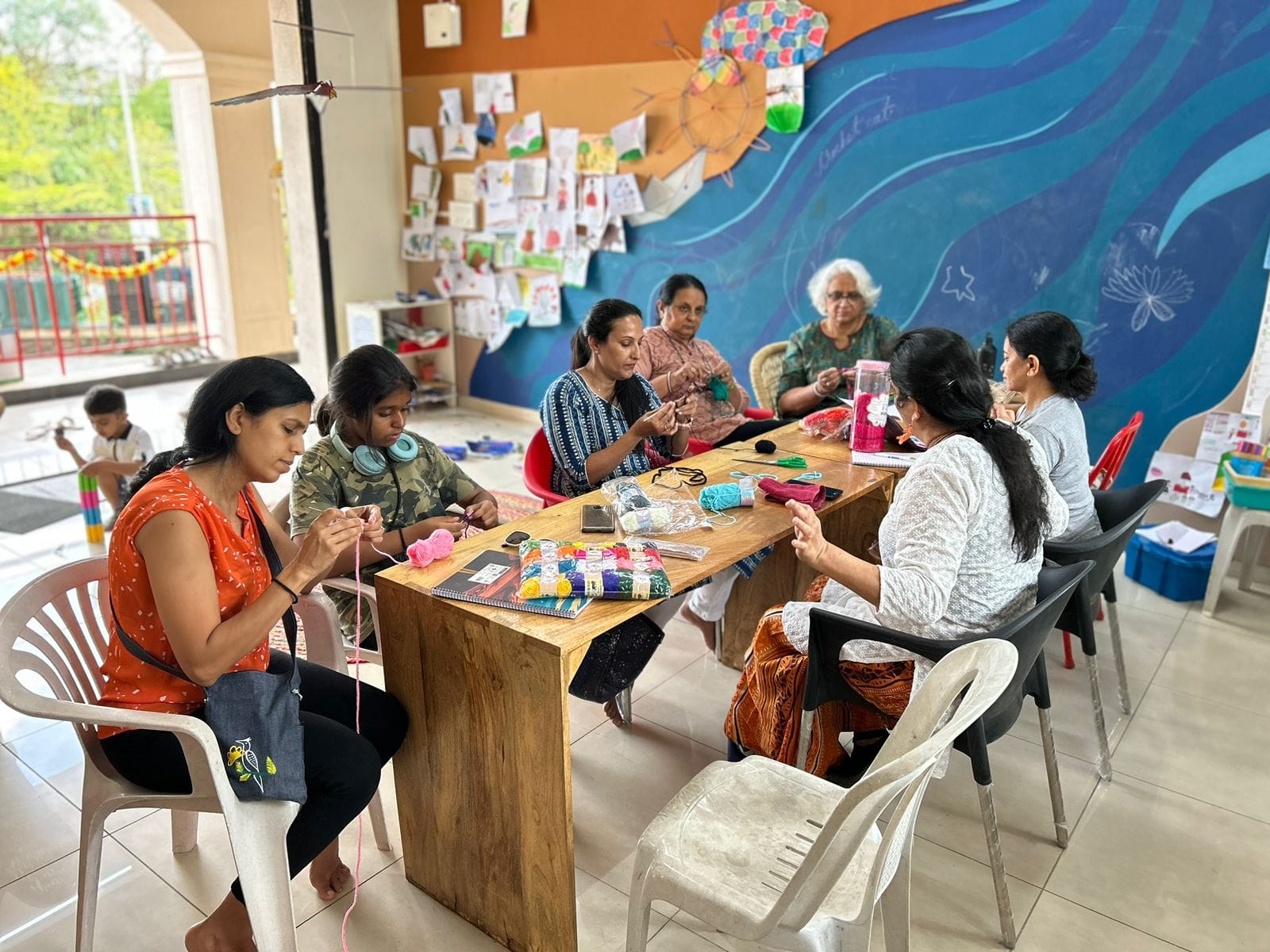
It is not just fun and happiness, but more than that - there is love and binding, and there is a deep satisfaction relating to people around for all.
Parul: I would like to give an example of how I have learnt from our little regular visitors. Once we screened Nagraj Manjule’s short film “Pistulya” for the kids from the villages and service providers’ children who regularly come here. Pistulya is about a little boy who wants to go to school but does not have the money to pay. He has to drop out of school and is inducted into the business of burglary for his livelihood. He has a younger sister. In the last scene, he steals a uniform and runs away from the city, and he falls. But the uniform turns out to be a girl’s uniform! I thought that his labour went to waste as a girl’s uniform is of no use to him. I was watching the kids, mostly girls, engrossed in the movie. Tears were rolling down. When the film ended, they all just quietly got up, quickly put on their shoes, and walked away. The next day, they brought other friends from the village and requested to screen it again. And same, they cried and quietly left. Then I got another insight that the boy deliberately steals a girl’s uniform for his sister. His dream of schooling could not come true, but he wishes that at least his sister could learn! This insight I got because of our little regular visitors.
Surekha: You are very active internationally too, in the community of parents of people with disabilities, and also in other fields. You must be communicating about activities and outcomes at Aagḻévegḻé.
Parul: This year, Kabir, Anand, and I were invited to share our experiences of ‘Nurturing a Safe Inclusive Community Space - Aagḻévegḻé’ at the International Conference of Narrative Practices, Mental Health and Community Wellbeing in Pondicherry, and then the All India Social Role Valorisation Summit held at Rishikesh.
Anand: Our aim in our sessions at these conferences was to learn from the feedback of the national-international community and also to try and enthuse others to start something similar. We received an overwhelming response… We wish that every area of the world could have free, open, inclusive, non-judgmental community spaces where diverse persons of all classes, castes, regions, abilities, orientations, beliefs, etc. are welcome and greeted with dignity. Where you can be yourself and connect with others at a basic human level. This simple idea of human connection across diversity could take different forms – the time, frequency, space, content, etc would be creatively re-imagined, depending on the surroundings as well as the persons facilitating it. It could be done simply in an open garden, a gym, or other spaces too, even without any equipment. We would be happy to ideate and support others who wish to explore initiating something like this in their area.
Surekha: Thank you very much, Parul and Anand, for your thought-provoking discussion. Hope, Aagḻévegḻé proves to be an inspiration and replicates widely.
Anand and Parul: Thank you too, Surekha tai. … (Aagḻévegḻé is situated in the Forest Trails Township at Bhugaon, Pune. They can be contacted by messaging their Facebook Page: Aagḻévegḻé आगळेवेगळे or at Anand Kumtha’s mobile: 9930275026.)
